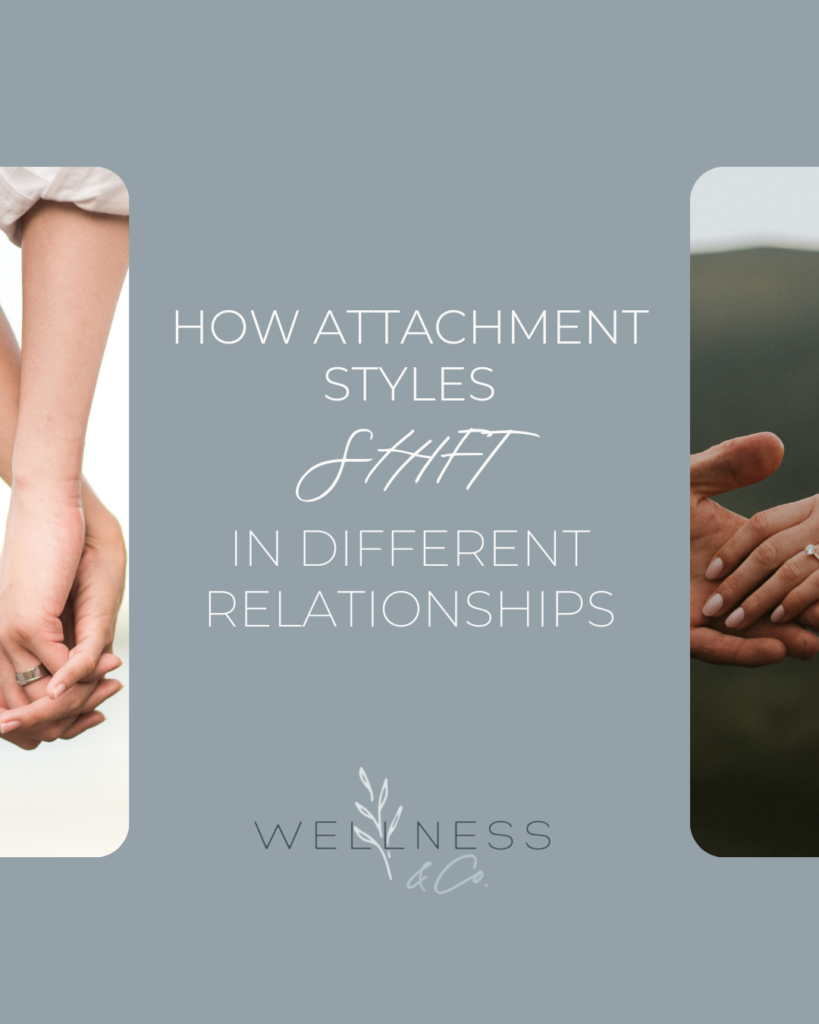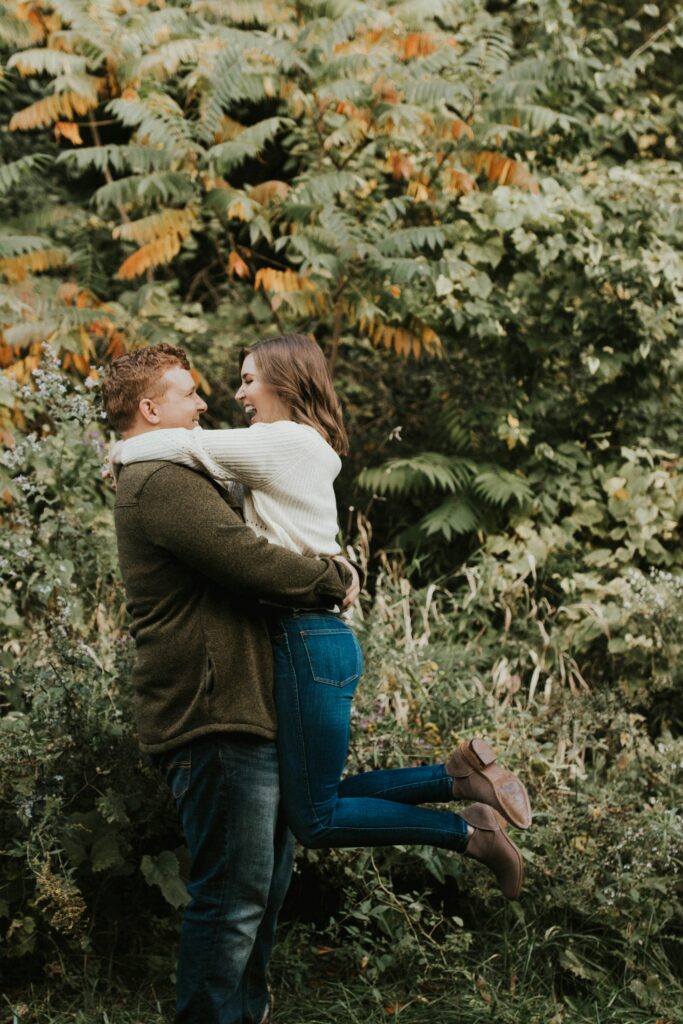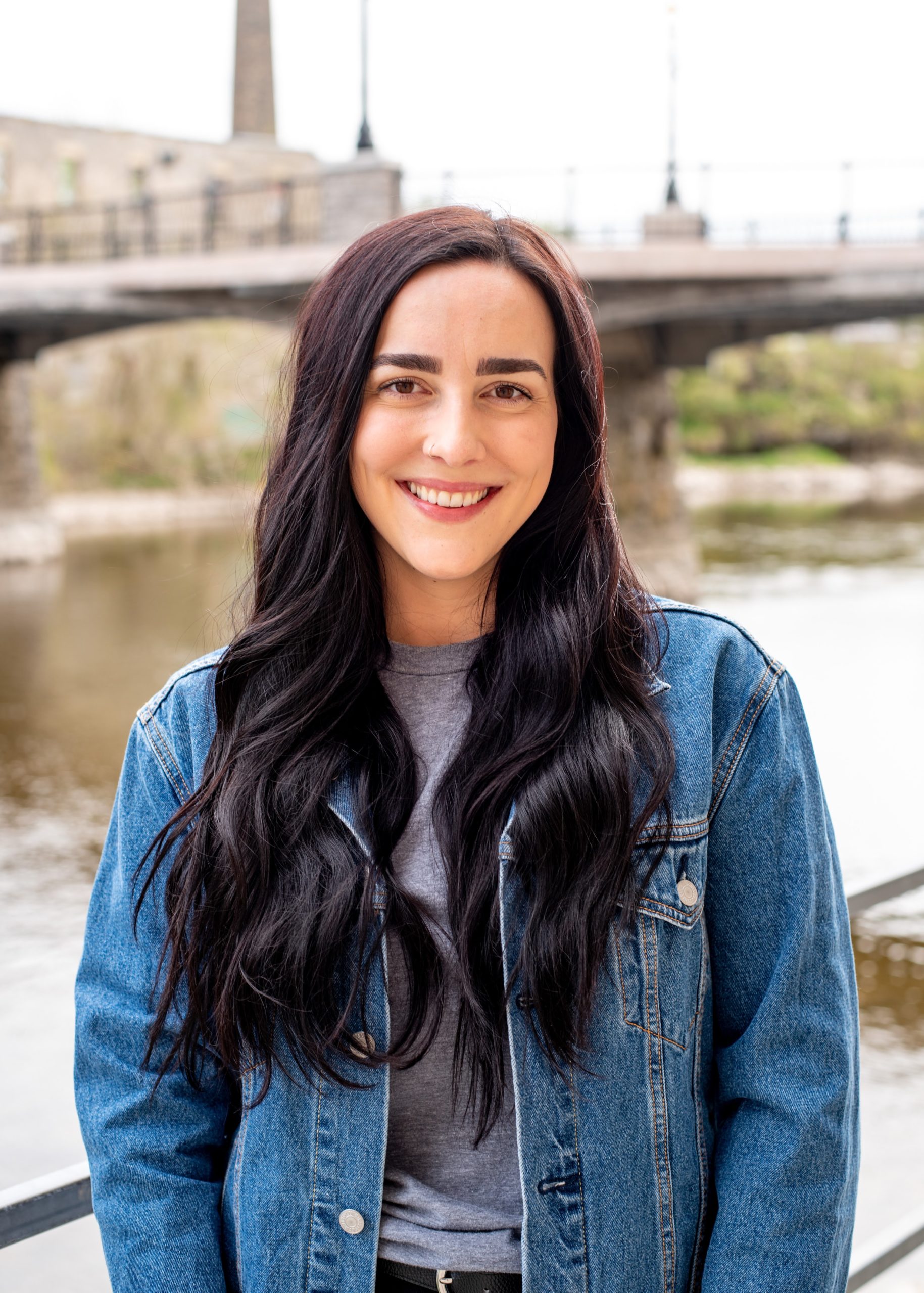Follow
Wellness & Co.
Hi, I'm Dr. K, Wellness & Co. is a growing therapy/coaching practice and educational hub for prospective clients based in Maryland and virtual clients all over the world!
Hi, I'm Dr. K
free guide
e -books
e -course
How Attachment Styles Shift in Different Relationships
April 30, 2024
By Amanda Clegg, Relationship Coach CLC, MNLP
READING TIME: 3 MINUTES

In the intricate dance of human connections, our attachment styles play a significant role. These styles, rooted in our early experiences with caregivers, influence how we relate and connect to others emotionally and behaviorally. What often goes unnoticed is how these attachment styles can shift in response to the unique dynamics of different relationships.
Attachment Styles 101:
Attachment theory, pioneered by psychologist John Bowlby and further developed by Mary Ainsworth, suggests that our early interactions with caregivers shape our internal working models of relationships. These styles, categorized into secure, anxious, avoidant, and disorganized, dictate how we approach intimacy, trust, and dependence in adulthood.
- Secure Attachment: Individuals with a secure attachment style feel comfortable with intimacy and are able to trust and rely on their partners while maintaining independence.
- Anxious Attachment: Those with an anxious attachment style often fear abandonment and seek constant reassurance from their partners, sometimes displaying clingy or needy behavior.
- Avoidant Attachment: Individuals with an avoidant attachment style prioritize independence and may struggle with intimacy, often withdrawing emotionally or physically when relationships become too close.
Disorganized Attachment: Individuals may desire closeness but feel overwhelmed by fear or mistrust, leading them to withdraw or avoid intimacy.

Fluid Nature of Attachment Styles:
While our attachment styles tend to remain relatively stable, they are not set in stone. They can adapt and change over time, particularly in response to new relationship experiences. Here’s how this fluidity manifests:
- Relationship Dynamics: The dynamics of each relationship can influence how our attachment styles manifest. For instance, someone with an anxious attachment style may feel secure in a relationship where their partner consistently provides reassurance and support.
- Partner’s Attachment Style: Our attachment style can also be influenced by our partner’s attachment style. In relationships where both partners have a secure attachment style, individuals may feel more stable and trusting. Conversely, being with a partner who exhibits avoidant tendencies might trigger a secure attacher to become anxious.
- Personal Growth and Coaching + Therapy: Through self-reflection, inner work, and coaching or therapy, individuals can develop a more secure attachment style over time through addressing underlying wounds and learning healthier relationship patterns. Meet with one of our providers – we’re here for you!
- Life Transitions: Major life transitions, such as becoming a parent, going through a divorce, or experiencing loss, can impact our attachment styles. These transitions may activate dormant attachment patterns or challenge existing ones, leading to shifts in how we relate to others.

Recognizing the fluidity of attachment styles can create beautiful pathways for healing. Understanding that attachment styles can change allows partners to communicate more effectively and empathize with each other’s needs and insecurities. Embracing the potential for transformation enables individuals to work on themselves and cultivate more beneficial attachment patterns, leading to more fulfilling relationships. And embracing the flexible nature of attachment styles encourages expansion in relationships, allowing partners to navigate challenges and transitions together.
A simple, yet powerful, tool I offer to my clients is the self-inquiry Q of “What would a secure attacher do?”…similar to “What would Jesus do?” haha. This playful and intentional approach allows us to connect to a deeper, wiser voice within that knows exactly what the next step is. The hardest part is trusting it and having it feel real, which is where I come in! Schedule a free consultation with me and let’s get you where you want to be!
Big love,
Amanda
Amanda works with couples and individuals who want to build secure, connected relationships – both within themselves and with the people they love. Using the Enneagram as a powerful framework for awareness and growth, she helps clients understand their patterns, soften reactivity, and create new ways of relating rooted in compassion and emotional safety.
Leave a Reply Cancel reply
CONTACT
Start Here
BLOG
OUR TEAM
SHOP
ABOUT
©2025 Wellness & Co. | All Rights Reserved | Design by EverMint Design Studio
BACK TO TOP
connect with us on instagram
